No. 44 (568) May 2025
REGIONAL FORUM "ENHANCING TRANSBOUNDARY COOPERATION FOR WATER SUSTAINABILITY AND CLIMATE RESILIENCE IN GLACIER-DEPENDENT BASINS OF CENTRAL ASIA"
On May 29, a regional forum (Forum 6) titled "Enhancing Transboundary Cooperation for Water Sustainability and Climate Resilience in Glacier-Dependent Basins of Central Asia" was held in Dushanbe as part of the High-Level International Conference on Glaciers Preservation. The Forum organized upon ICWCs decision by SIC ICWC jointly with a number of international organizations, including SDC, OECD, IWMI, WB, GIZ, UNRCCA, and UNECE, brought together in total 120 participants, including policymakers, practitioners, and researchers from the Central Asian countries and representatives of international organizations to address the key issues of water, food, energy and environmental security in Central Asia.
This Forum served as a platform for advancing regional science-policy dialogue, policy alignment, cross-sectoral engagement and innovative solutions to enhance climate resilience and sustainable development across Central Asia's glacier-dependent river basins.
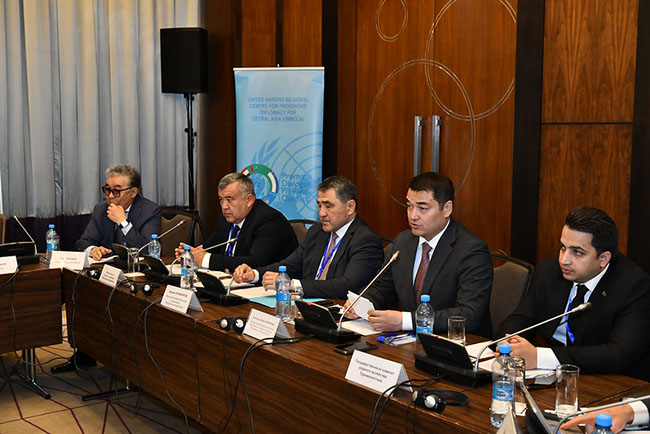
The Forum was opened by ICWC members from Kazakhstan and Tajikistan and representatives of water ministries of Turkmenistan and Uzbekistan. They underlined an urgent need for collective efforts for sustainable resource management and ecosystem preservation, while paying particular attention to mountain ecosystems. Development partners in their opening speeches emphasized the importance of well-informed and flexible support to countries' nexus-based efforts to enhance climate resilience and integrated water resources management at both national and regional levels.
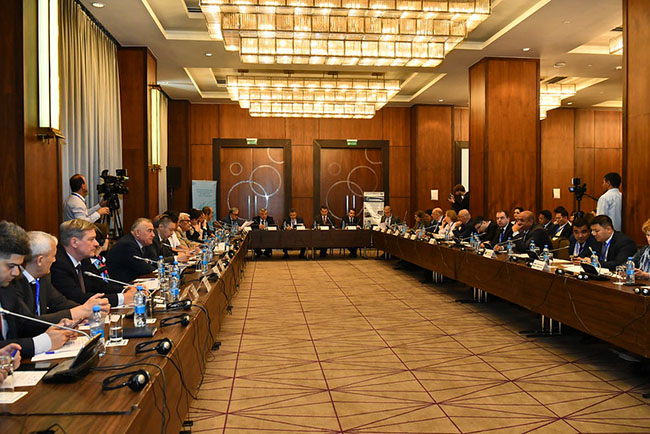
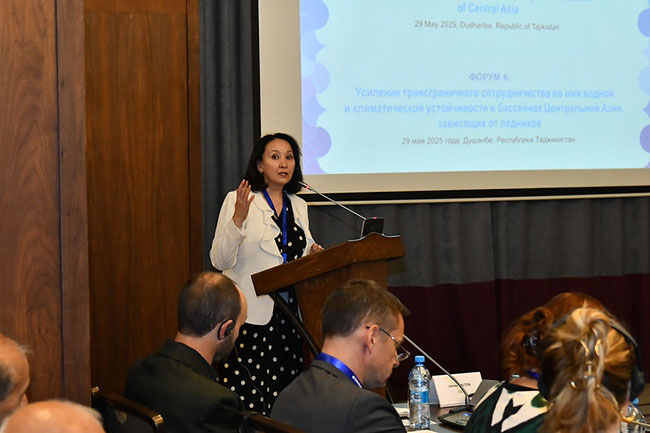
The Forum was comprised of three thematic sessions.
Speakers of Session 1 "Strengthening Transboundary Governance and Policy Coordination" indicated to a growing level of trust among the states that creates a good potential for a deeper coordination and integration. They underlined that regional dialogue, cooperation and trust are essential for efficient use and peaceful management of Amu Darya and Syr Darya rivers, against the backdrop of growing variability and uncertainty, and showcased the regional mechanisms of cooperation. The need for more active involvement of Afghanistan's representatives in expert dialogue on climate, water, and ecosystems was highlighted.
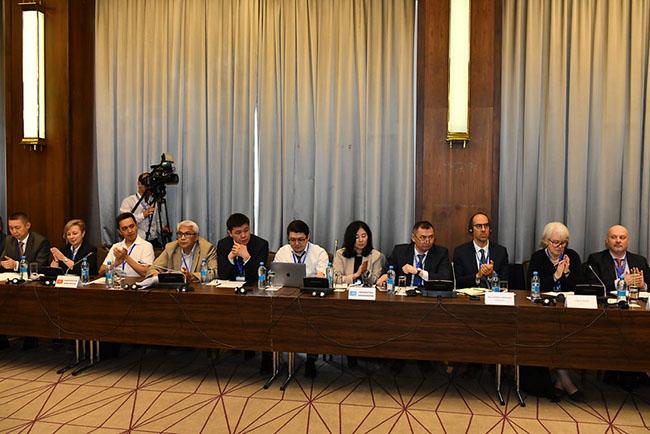
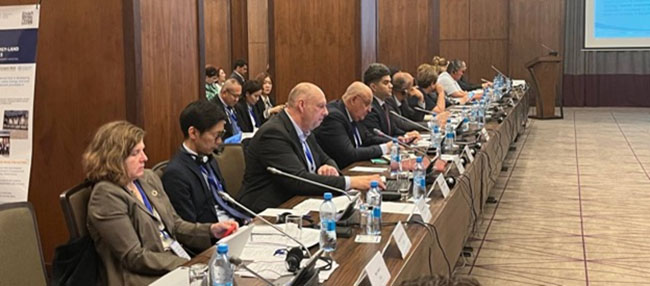
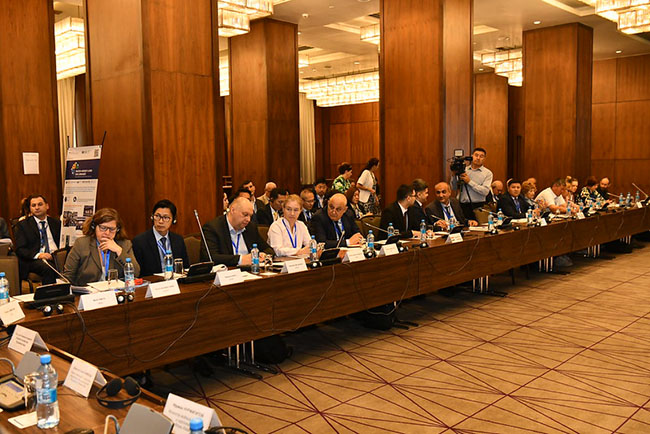
Session 2 "Science-Policy Interface for WEFE Nexus" showcased opportunities to leverage data and research for improved climate adaptation. Particular attention was given to the potential use of cryospheric data through emerging tools such as snowMapper, glacierMapper and others. It was emphasized that mountain ecosystems are a key element of sustainable development in Central Asia, and research in this area should focus on understanding their resilience to climate change and developing restoration measures. During the session, SIC ICWC presented preliminary findings of a study on water-dependent ecosystems in the Amu Darya River Basin to inform the GIZ-supported basin dialogue.

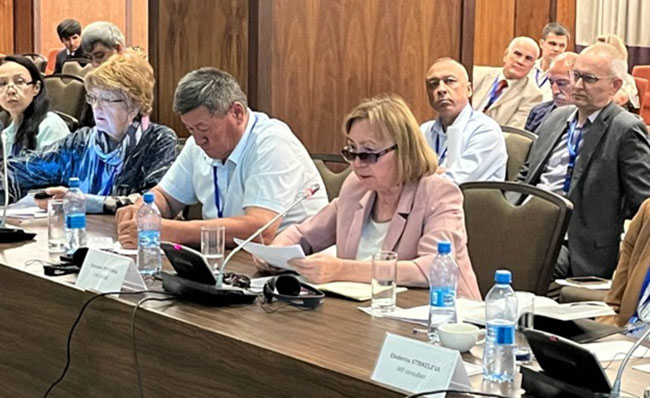
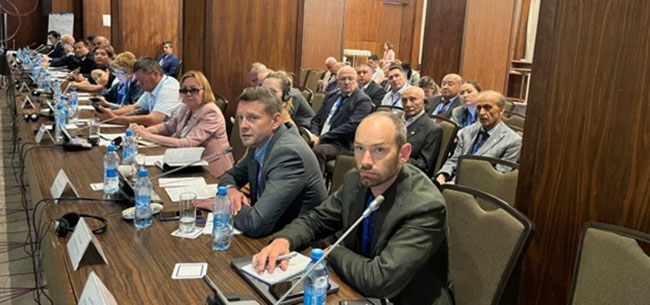
Session 3 explored investment pathways and financing mechanisms for resilience, infrastructure development and basin management based on nexus. The session also featured, among other things, the progress made under the IKI Nexus project implemented by OECD, SIC ICWC, and UNECE with the financial support from Germany.
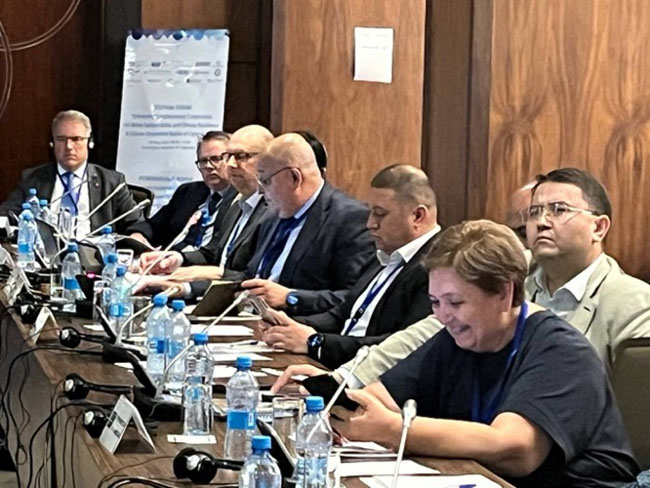
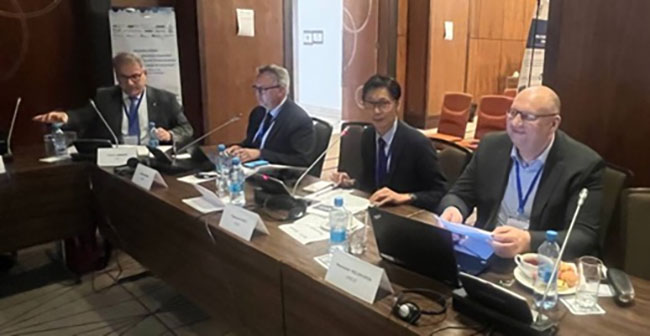
Based on the outcomes of the Forum, the following key messages were formulated:
- Glacier-fed river basins are at the heart of Central Asia's water, energy, food, and ecosystem security - their sustainable management and protection require transboundary cooperation, coordinated planning and due diligence in implementing policy decisions to promote regional stability and development and to reduce risks.
- Bridging science and policy enables the use of all relevant data and tools, early warning systems, modeling, and research findings to inform basin planning and management, resilient infrastructure development, and ecosystem restoration.
- Integrating ecosystem considerations into basin water management in Central Asia from glaciers to deltas - is essential for sustaining water security, preserving biodiversity, and enhancing climate resilience.
- Innovative and "right" financing, aligned with Nexus thinking, is urgently needed to enhance long-term resilience, support sustainable solutions from source to end-user, and ensure equitable benefit-sharing aligned with national and regional priorities.
- The Forum reaffirmed a shared regional commitment to strengthen dialogue, multi-stakeholder partnerships involving governments, the private sector, researchers and civil society and to implement joint solutions for the future of Central Asia - including engagement with Afghanistan.
- The outcome of the Forum was a shared understanding among stakeholders on priorities for water-related climate resilience, reinforced partnerships between national institutions, regional platforms, and international organizations, and knowledge exchange on emerging tools and practices in support of transboundary cooperation in Central Asia.